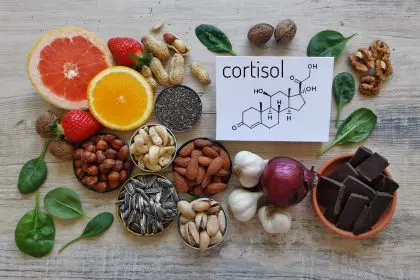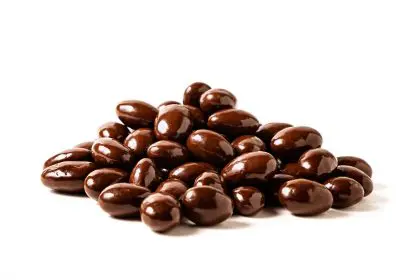The humble banana has become a subject of intense debate in weight loss communities, with opinions ranging from enthusiastic endorsement to cautious skepticism. Understanding the true impact of this common fruit on weight loss requires delving deep into its nutritional composition and how it affects various bodily processes.
Understanding banana’s nutritional profile
When examining the role of bananas in weight loss, it’s essential to first understand their complete nutritional makeup. A medium banana provides approximately 100 calories and contains an impressive array of nutrients, including vitamins B6 and C, potassium, manganese, and dietary fiber. Each of these components plays a unique and vital role in supporting overall health and potentially aiding weight loss efforts.
The crucial role of potassium
Potassium emerges as one of the most significant nutrients in bananas for those pursuing weight loss goals. This essential mineral extends far beyond its well-known role in preventing muscle cramps. Potassium actively participates in carbohydrate metabolism and protein synthesis, making it particularly valuable for individuals trying to maintain or build lean muscle mass while losing weight.
Fiber’s impact on weight management
The fiber content in bananas deserves special attention when considering their role in weight loss. A medium banana contains about 3 grams of fiber, combining both soluble and insoluble types. This fiber content proves particularly beneficial for weight management through multiple mechanisms, including promoting satiety, slowing digestion, and supporting healthy gut bacteria.
Blood sugar regulation and weight loss
One of the most intriguing aspects of bananas in relation to weight loss involves their impact on blood sugar levels. Bananas contain resistant starch, a unique type of carbohydrate that behaves differently in the body compared to regular starches. This compound helps prevent dramatic blood sugar fluctuations that often lead to energy crashes and subsequent overeating.
Exercise nutrition and performance
For individuals combining physical activity with their weight loss efforts, bananas offer particular advantages. The fruit’s natural combination of quick-acting and slower-releasing carbohydrates creates an ideal energy profile for both pre-workout fueling and post-exercise recovery. The portable nature of bananas also makes them a convenient option for active individuals.
Digestive health considerations
The gentle nature of bananas on the digestive system provides an additional advantage for those pursuing weight loss goals. Many people find that intense dietary changes can lead to digestive discomfort, but bananas rarely cause such issues. This digestive friendliness allows individuals to maintain consistent healthy eating habits without gastrointestinal disruption.
Strategic timing for maximum benefit
The timing of banana consumption can significantly influence their impact on weight loss efforts. Consuming bananas strategically around workouts can optimize their benefits. Pre-workout consumption provides readily available energy for exercise, while post-workout consumption aids in recovery and muscle glycogen replenishment.
Portion control and serving sizes
Understanding appropriate portion sizes proves crucial when incorporating bananas into a weight loss plan. While a medium banana contains about 100 calories, larger specimens can contain significantly more. Being mindful of portion sizes helps ensure the benefits of banana consumption without inadvertently exceeding caloric goals.
Combining bananas effectively
The way bananas are incorporated into meals and snacks can enhance their weight loss benefits. Pairing bananas with protein sources or healthy fats creates more balanced nutritional profiles. For example, combining a banana with Greek yogurt or a small portion of nuts creates a more satisfying and nutritionally complete snack.
The role of resistant starch
Diving deeper into the resistant starch content of bananas reveals interesting implications for weight management. This unique carbohydrate resists digestion in the small intestine, instead reaching the large intestine where it feeds beneficial gut bacteria. This process may influence metabolism and fat storage in ways that support weight loss efforts.
Metabolic considerations
The impact of bananas on metabolism deserves careful consideration. While they contain natural sugars, their fiber content and resistant starch help moderate the body’s insulin response. This moderation can help prevent the metabolic ups and downs that often derail weight loss efforts.
Satiety and hunger management
One of the most practical benefits of bananas for weight loss relates to their effect on satiety. The combination of fiber, natural sugars, and resistant starch helps create a feeling of fullness that can last several hours. This satiety effect can help reduce overall caloric intake by preventing unnecessary snacking.
Nutrient density and caloric efficiency
When evaluating foods for weight loss, considering their nutrient density relative to caloric content proves important. Bananas offer an impressive array of vitamins, minerals, and other beneficial compounds while maintaining a moderate calorie count. This makes them a relatively efficient choice for meeting nutritional needs while maintaining a caloric deficit.
Long-term sustainability
Successfully incorporating bananas into a weight loss plan requires considering long-term sustainability. Rather than viewing bananas as either completely beneficial or detrimental, focus on how they can fit into an overall balanced eating pattern. This approach allows for more flexible and sustainable dietary habits.
Common misconceptions
Addressing common misconceptions about bananas and weight loss helps individuals make more informed decisions. While bananas do contain natural sugars and carbohydrates, their overall nutritional profile and effects on the body support rather than hinder weight loss when consumed appropriately.
In conclusion, bananas can play a beneficial role in weight loss efforts when incorporated thoughtfully into an overall balanced diet. Their combination of nutrients, fiber, and natural compounds supports various aspects of weight management, from exercise performance to hunger control. Success lies not in viewing bananas as a magic solution or a dietary enemy, but in understanding how to leverage their benefits while being mindful of portion sizes and timing. By taking this balanced approach, individuals can enjoy the nutritional advantages of bananas while pursuing their weight loss goals effectively.












